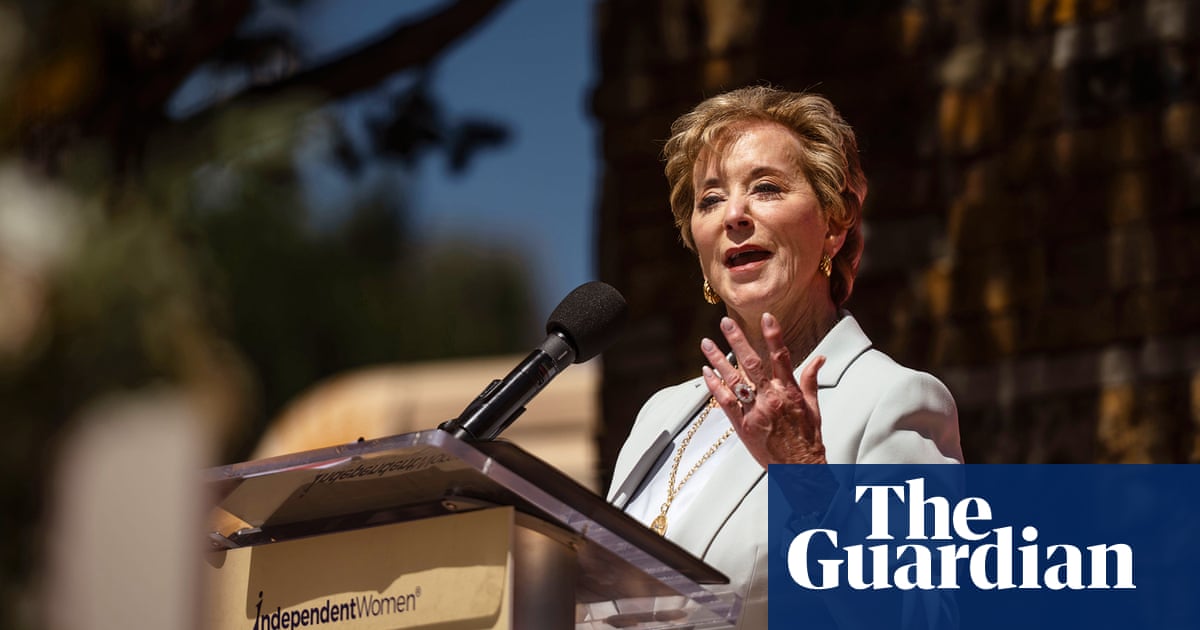White House budget director Russ Vought pressed senators on Wednesday to clear President Donald Trump’s request to scrap $9.4 billion, amid GOP resistance to slashing funding for global health programs, public radio and PBS.
Testifying before the chamber’s appropriators, the OMB chief laid out the White House’s argument for canceling $8.3 billion in foreign assistance and $1.1 billion for public broadcasting. The request — a sliver of the nearly $7 trillion the federal government spends each year — is one small cog in Vought’s strategy to kill funding Congress already approved, as Republican lawmakers quietly decry Trump’s undercutting of their “power of the purse.”
“Most Americans would be shocked and appalled to learn that their tax dollars — money they thought was going to medical care — was actually going to far-left activism, population control and sex workers,” Vought said of the global health funding.
The director also called PBS and NPR “radical far-left networks,” arguing that “there is no longer any excuse for tax dollars to subsidize” them.
Activists disrupted the hearing to protest the proposed cuts to global health programs and AIDS prevention. The protesters held up signs and chanted “Vought’s Cuts Kill,” and “Vought Lies, People Die!” Capitol police officers forcibly removed some of the protesters from the room, with at least one hitting his head on the floor.
If Vought fails to sway enough support among GOP senators, the White House risks another congressional repudiation of Trump’s desired clawbacks — after the Senate narrowly rejected his request in 2018 to nix $15 billion.
Senate Appropriations Chair Susan Collins (R-Maine), who opposed the 2018 request, is again among the wary. Leading the Wednesday hearing to press Vought on what specific accounts the White House intends to slash, Collins reiterated her opposition to cutting funding for PEPFAR, the AIDS-fighting program credited for saving millions of lives since then-President George W. Bush launched it more than 20 years ago.
“Cutting funding now — funding that is aimed at preventing disease transmission — would be extraordinarily ill-advised and short-sighted,” Collins said during the hearing.
The Maine Republican, who has said she wants “significant” changes to the package, also raised concerns Wednesday about the White House’s request to kill support for public broadcasting.
“This funding supports everything from emergency communications in rural areas to coverage of high school basketball championships …” Collins said. “Nationally produced television programs such as ‘Antiques Roadshow,’ ‘Daniel Tiger's Neighborhood’ are also enjoyed by many throughout our country.”
If Vought’s sales pitch works and Congress clears the clawbacks package in the next few weeks, the Trump administration will finally get to send some cash back to the Treasury, slightly shrinking the deficit, after months of canceling and freezing billions of dollars lawmakers previously passed into law.
At the White House and on Capitol Hill, Republicans like to describe it as “banking” or “codifying” a slice of the spending cuts Vought has orchestrated across federal agencies since the president first ordered the slashing on Inauguration Day. That's alongside the reductions Elon Musk led atop the Department of Government Efficiency.
The clock is ticking. After the House narrowly passed the package earlier this month, Senate GOP leaders have been sitting on the bill as they focus on passing their party-line tax and spending package. If the Senate doesn’t vote by midnight on July 18, the request will expire, forcing the Trump administration to spend the money and barring the president from sending another request to claw back cash from the same programs.
In less than two weeks, the Senate will hit another key date. Come July 7, any senator will be able to trigger a floor vote to launch the package from committee and jumpstart floor debate. It was that first procedural vote that the Senate defeated in 2018 in rejecting Trump’s request to rescind funding that year.
This time, the calculus for GOP lawmakers is far more complicated. The $9.4 billion clawbacks request is just one legitimate tool the White House is using while simultaneously testing the bounds of the president’s legal authority by “impounding” billions of dollars without Congress’ consent, spurring more than 100 lawsuits throughout the country.
Washington Sen. Patty Murray, the Senate’s top Democratic appropriator, said during the hearing that “perhaps the only silver lining” is that the White House is acknowledging the law and Congress’ authority by sending the package, “instead of flagrantly breaking the law — something it has done relentlessly under the directorship of director Vought.”
“But let’s not kid ourselves,” Murray continued. “This vote does not represent a path back to lawful behavior, when director Vought continues to, as he says, ‘keep all options on the table’ when it comes to ignoring the law.”
While pursuing the current rescissions package, Vought has publicly touted Trump’s power to then cancel funding this fall without Congress’ approval and to spend less than lawmakers approve for the upcoming fiscal year. Both threats have intensified friction between Vought and the Republican lawmakers who control federal funding.

 German (DE)
German (DE)  English (US)
English (US)  Spanish (ES)
Spanish (ES)  French (FR)
French (FR)  Hindi (IN)
Hindi (IN)  Italian (IT)
Italian (IT)  Russian (RU)
Russian (RU) 























Comments